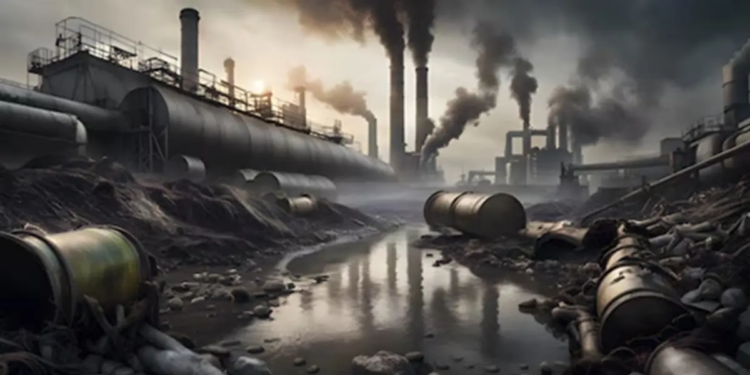The Ministry of the Environment announced a significant tightening of the system for controlling and sanctioning industrial pollution. During the plenary session of November 13, 2025 devoted to the presentation of the 2026 budget, Minister Habib Obeid specified that companies in violation now face fines ranging from 50,000 to 100,000 dinars, depending on the seriousness of the excesses observed.
A heavy liability: 71 companies already pinned
This tightening comes in a context marked by several cases of industrial pollution. Earlier this year, the ministry identified 71 companies responsible for illegal discharges in Oued Meliane and on beaches in the southern suburbs of Tunis, leading to 86 citations.
The new sanctions framework aims to strengthen the effectiveness of these control actions.
Also read:
Tunisia: 71 companies pollute Wadi Meliane and the beaches of the southern suburbs
Waste and illegal dumping: a bill to penalize more
The government is also preparing to strengthen the legal framework against anarchic deposits.
Bill No. 87, already tabled before Parliament, provides:
- fines of 100 to 5,000 dinars for throwing waste,
- up to six months in prison for serious offenses,
- sanctions against illegal transporters,
- and increased responsibility of municipalities.
According to the minister, the fight against illegal dumping is carried out in coordination with the Ministry of the Interior.
Also read:
Tunisia: A bill to penalize the throwing of waste, with fines and prison at stake
A system under pressure: 10,000 tonnes of waste per day
Habib Obeid recalled that Tunisia is facing a structural overload:
- 10,000 tonnes of waste are generated every day,
- distributed between 16 controlled landfills, most of which are saturated.
In Greater Tunis, where production reaches 2,700 tonnes/day, the ministry is preparing the establishment of four recovery units intended to modernize waste treatment.
The minister also announced a sanitation program targeting 136 working-class neighborhoods, as well as the release of 37 infrastructure projects out of the 40 that were pending.
Also read:
2700 T of waste per day: Greater Tunis is preparing four recovery units
Energy recovery: a roadmap to 2050
In a second aspect, the ministry focuses on the transformation of waste into energy. A pilot station will be launched in 2025, in partnership with STEG. The government has already published a decree authorizing electrical units running on waste, and is preparing additional text to officially recognize alternative fuel (RDF).
These guidelines are part of a roadmap developed by the National Agency for Energy Management (ANME) and international partners, which provides for energy recovery scenarios until 2050.
Coastline, specialized sectors and research: a reinforced system
The minister announced two major envelopes for coastal protection: 60 million euros dedicated to priority interventions in the most exposed areas (Sousse, Nabeul, Bizerte, Monastir, Mahdia) and 240 million dinars allocated to operations supervised by the Coastal Protection Agency.
At the same time, the specialized waste treatment sector has consolidated with 9 companies approved for healthcare waste and 2 companies authorized for pharmaceutical waste. The question of marjine, a residue from the olive industry, is finally the subject of a scientific research program mobilizing experts in order to identify sustainable valorization solutions.








